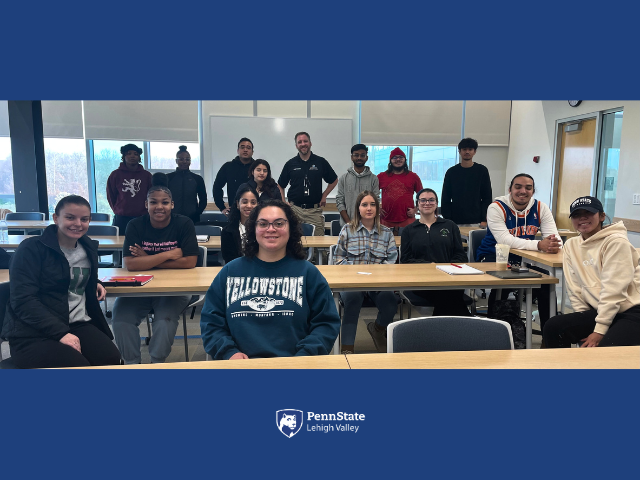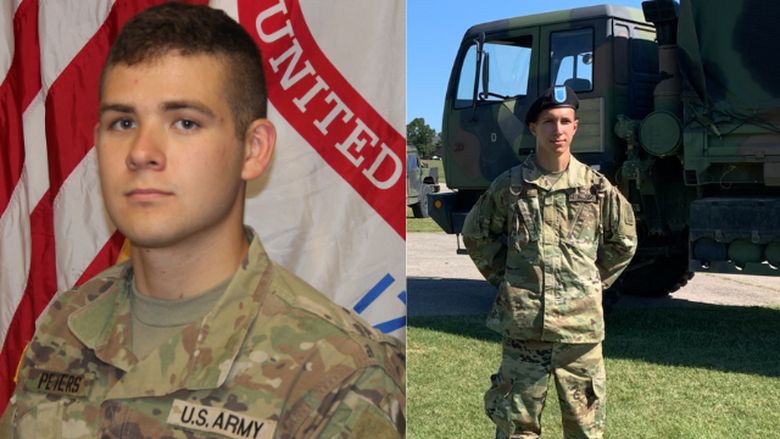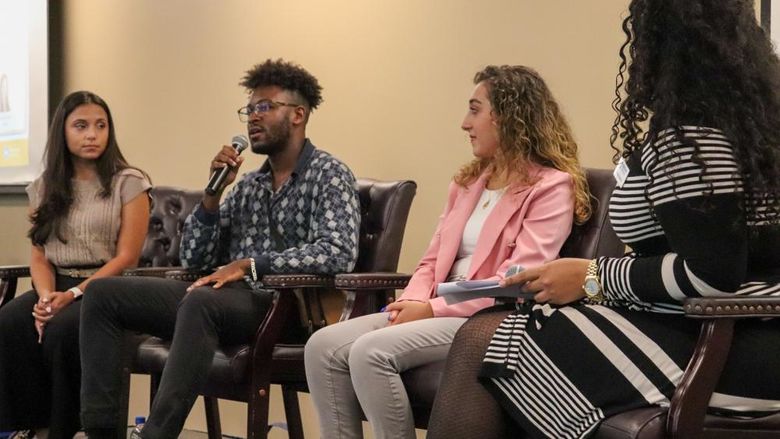
Lt. Kurt Cortazzo, recruitment and retention specialist with Pennsylvania Department of Corrections, spoke to Debra Dreisbach’s Introduction to Criminal Justice class recently. Cortazzo spoke about job opportunities in the corrections field and shared stories from his own career.
CENTER VALLEY, Pa. — A representative with Pennsylvania Department of Corrections (PA DOC) shared his experiences within the system during a recent presentation to students in the Introduction to Criminal Justice class at Penn State Lehigh Valley (PSU-LV).
Lt. Kurt Cortazzo has moved steadily through the ranks in the field, starting as a corrections officer (CO) at a halfway house before transitioning to a position at a state prison. Throughout his decades-long career, he saw many positive changes in the approach to rehabilitating inmates.
Recently promoted to lieutenant, in his current role Cortazzo works with COs directly and helped implement some of those changes.
“His [Cortazzo's] main focus is recruiting in his current role, but he also focuses on the wellness of corrections officers to make the job a little better,” said Debra Dreisbach, assistant teaching professor and criminal justice program coordinator at PSU-LV.
The students and Cortazzo’s enthusiasm for the field was mutual.
“He was very relatable. He talked to students at their level, so they were excited to ask questions,” Dreisbach said.
Cortazzo said there have been many positive changes in the corrections system over the years.
“The focus of the corrections system isn’t ‘lock them up and throw away the key’ anymore,” said Dreisbach. “As Cortazzo mentioned, it’s more about rehabilitating inmates. Many facilities offer college courses and different classes to help them develop skills they can use to be successful when they re-enter society. The change in focus has really been successful.”
Students learned about the countless opportunities available in the corrections system beyond CO positions.
“He did talk about the training required to be a CO. Students were particularly fascinated by the taser and pepper spray training,” Dreisbach said. “Many times, students see the corrections system as a last resort for employment, but it shouldn’t be that way anymore. We talked about different positions within corrections, from counselors to those who help inmates re-enter society.”
The system also relies on professionals like accounting, human resources, and various trades to keep facilities and operations running, said Dreisbach.
Cortazzo is the latest in a series of professionals Dreisbach has brought to campus to share their knowledge, skills and experience with criminal justice students and the broader PSU-LV community. Cortazzo handed out business cards to any student who wanted one, and Dreisbach said every student took one.
“I’m sure there are students who will keep in touch with him,” she said. “All of our speakers have done the same thing [hand out business cards] which I think is wonderful. It’s really important for them to have exposure to different professions, interact with these professionals, and grow their network.”
For more information on the criminal justice program, contact Dreisbach at dad68@psu.edu or visit the program’s website.



